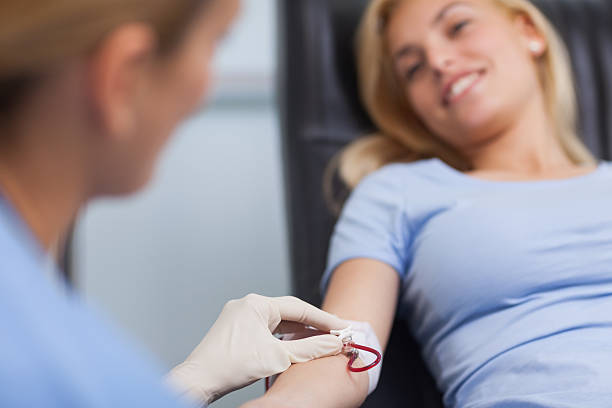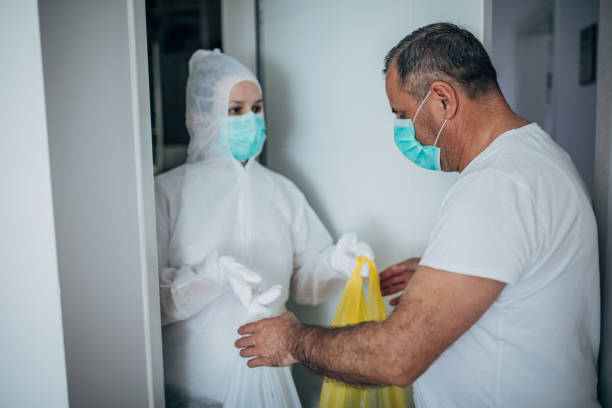Understanding Egg Donation Disqualifiers
Egg donation is a vital process in assisted reproductive technology that helps individuals and couples achieve their dream of parenthood. However, not everyone who wishes to become an egg donor is eligible. Various factors can disqualify a potential donor from participating in the egg donation process. Understanding these disqualifiers is crucial for both potential donors and recipients to ensure that the process remains safe, ethical, and effective.
Health Conditions and Medical History
One of the primary disqualifiers for egg donation is a donor's medical history. Egg donation programs typically require thorough medical evaluations to ensure that donors do not have conditions that could impact their health or the health of the resulting embryos. For instance, women with chronic health conditions such as diabetes, hypertension, or autoimmune disorders may be disqualified. These conditions can complicate pregnancy and pose risks to both the donor and the recipient. Additionally, a history of cancer, particularly reproductive cancers, can be a disqualifier due to potential long-term health implications and risks.
Infectious diseases also play a significant role in determining eligibility. Potential donors are often tested for sexually transmitted infections (STIs), hepatitis, and HIV. These infections can be transmitted to the recipient through the egg and may result in serious health consequences. To safeguard the health of the recipient and any resulting children, egg donation programs may exclude individuals who test positive for these infections.
Age Requirements
Age is another critical factor in egg donation eligibility. Most programs have specific age ranges for potential donors, typically between 21 and 35 years old. This age range is chosen based on research indicating that women in this period are more likely to have healthier eggs and fewer health complications during the donation process. Younger women may have a higher number of viable eggs, while older women may face a higher risk of chromosomal abnormalities and other issues. Thus, women outside this age range are generally disqualified to ensure the best possible outcomes for the recipient.
Reproductive History and Ovarian Reserve
A woman’s reproductive history and ovarian reserve are also taken into consideration. Donors who have a history of reproductive issues, such as irregular menstrual cycles or previous infertility, may face disqualification. These conditions can indicate potential problems with egg quality or quantity. Ovarian reserve tests, including ultrasound and hormone level assessments, are used to evaluate the number and quality of eggs a woman has. Low ovarian reserve can disqualify a donor, as it may result in fewer viable eggs and lower chances of successful fertilization and pregnancy.
Lifestyle Factors
Lifestyle choices can significantly impact egg donation eligibility. Potential donors are evaluated on their lifestyle habits, including diet, exercise, and substance use. Smoking, excessive alcohol consumption, and drug use can negatively affect egg quality and overall reproductive health. Egg donation programs aim to ensure that donors maintain a healthy lifestyle to maximize the chances of a successful donation. Women with a history of substance abuse may be disqualified due to the potential long-term effects on reproductive health.
Psychological Evaluation
Psychological health is an essential aspect of the egg donation process. Donors undergo psychological evaluations to assess their mental and emotional well-being. This evaluation ensures that donors are making an informed and voluntary decision to participate in the process. Women who show signs of psychological instability, such as severe depression or anxiety, may be disqualified. Emotional readiness is crucial, as the donation process can be demanding and may have psychological implications.
Genetic Factors
Genetic screening is an integral part of the egg donation process. Potential donors are often tested for genetic disorders that could be passed on to the recipient or the resulting child. Common genetic tests include screenings for conditions such as cystic fibrosis, sickle cell anemia, and Tay-Sachs disease. Women who test positive for these genetic disorders may be disqualified to prevent passing on these conditions. Genetic counseling is provided to help donors understand the implications of their genetic screening results.
Previous Donation History
A donor's history of previous donations is also considered. Many egg donation programs have limits on the number of times a woman can donate eggs to prevent potential long-term health impacts and to ensure ethical practices. Women who have previously donated eggs multiple times may be disqualified from further donations. This policy is in place to protect the donor’s health and to ensure that the egg donation process remains ethical and responsible.
Legal and Ethical Considerations
Legal and ethical considerations play a crucial role in determining egg donation eligibility. Egg donors must be fully informed of their rights and responsibilities and must provide consent for the donation process. Women who do not meet the legal requirements or who have concerns about the ethical implications of egg donation may be disqualified. Ensuring that all legal and ethical standards are met is essential for the integrity of the egg donation process.
Conclusion
Egg donation is a complex process with many factors influencing eligibility. From medical history and age to lifestyle choices and genetic factors, various disqualifiers ensure that the process remains safe and effective for all parties involved. Understanding these disqualifiers helps potential donors make informed decisions and supports the overall success of egg donation programs. By adhering to these criteria, egg donation programs can provide the best possible outcomes for recipients while safeguarding the health and well-being of donors.




